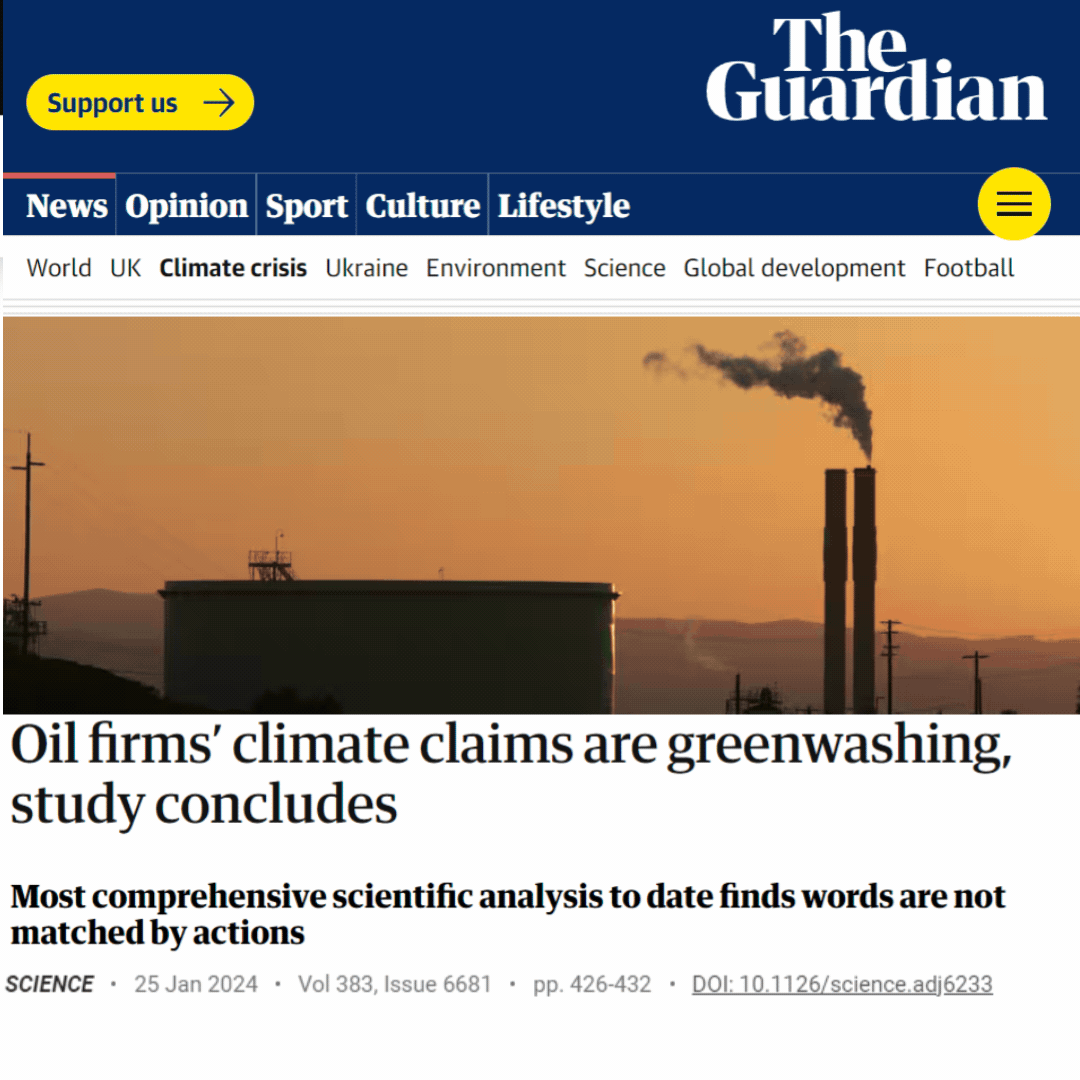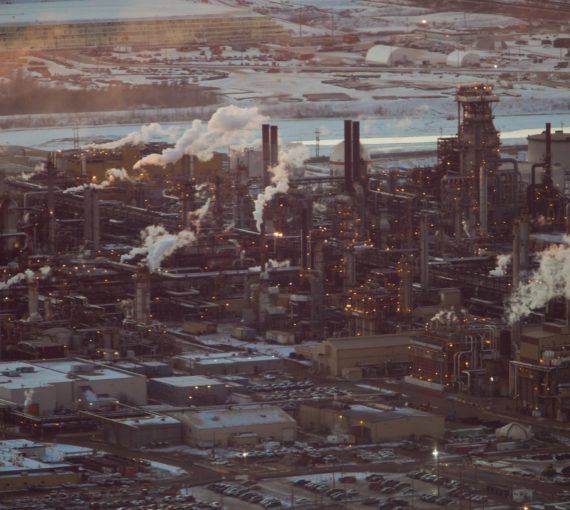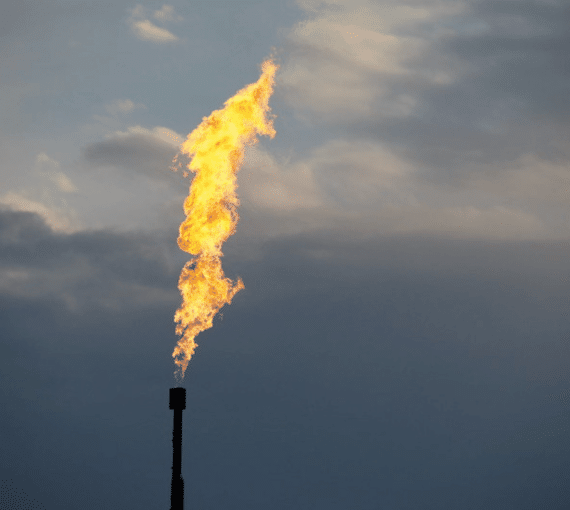You can't hide pollution
For decades, fossil fuel companies have shaped the public’s perception of their business, concealing the true environmental and social costs.
Today, the fossil fuel industry continues to use its power and influence to slow down essential climate action and the inevitable switch to renewable energy — all while making life more expensive by driving up inflation, energy bills and gas prices.
Although we don’t have the same advertising budget or powerful lobbyists, we believe in the strength in numbers of concerned individuals, families and communities.
Together, we can call out this industry’s practices and push for change.
“We need to fight against the fossil fuel era and an industry that is not going to go down lightly.” – Severn Cullis-Suzuki
It’s worth repeating: Fossil fuels are by far the largest contributor to the climate crisis. Most of the harmful greenhouse gas emissions in the atmosphere are from burning coal, oil and gas. This has caused global heating, with record-breaking temperatures and destructive extreme weather events.
The harmful effects of fossil fuels are wide-ranging: air pollution, oil spills, deforestation, contaminated water, destruction of wildlife and habitat, pollution-caused disease and death and more. We’re already seeing more wildfires, heat domes, droughts, floods, health impacts, migrant crises, water shortages, species extinctions and other consequences of wastefully burning fossil fuels.
The world’s leading scientists and energy agencies have recommended again and again that we must end our reliance on fossil fuels. So why don’t we?
The truth about fossil fuels

The fossil fuel industry has known as early as the 1950s that its operations would have devastating effects on the planet, but made the decision to lie to the public and cover up evidence — sowing doubt about climate science and convincing people that fossil fuels are here to stay.
Today, we continue to see evidence of the industry’s tactics to delay meaningful climate action. Misleading advertising and PR campaigns and social media, overrepresentation at international negotiations including the COP climate conferences, funding misleading climate studies, touting (and requesting public funds for) ineffective carbon capture and storage technologies and ramping up plastic production as a Plan B.
“Fossil fuel funding is an investment in disaster.” – David Suzuki
Help stand up against the fossil fuel industry
Share your concern and help educate those you know.
Learn to spot industry’s false climate claims and misinformation. Use our guide to navigate difficult conversations about climate change or any divisive topic.
Write to politicians and decision-makers.
Sign one of our online petitions below.
Take steps to get off fossil fuels as individuals.
Here are four ways to cut your carbon.
PEOPLE AND PLANET, NOT POLLUTER PROFITS!
Hold the oil and gas sector accountable for its role in the climate crisis
End the Fossil Fuel Era

How to stop oil and gas disinformation
In a world of climate pledges and greenwashing campaigns, how can we tell if companies are telling the truth? Here are some tools to help spot the deception and stop oil and gas industry disinformation.

Fossil fuel industry’s Plan B
Plastics are a byproduct of fossil fuels. It appears that the fossil fuel industry sees plastics as its Plan B for profits as we shift to renewable energy.
Nearly 90 per cent of plastic waste in Canada ends up in landfills, incinerators, lakes, parks and oceans. Plastic pollution hurts the wildlife we love, the planet we live on and, ultimately, us.
Expert views
Exposing fossil fuel disinformation, one lie at a time
Big Oil lobbyists have enlisted politicians to help spread disinformation. Some has become so prevalent that it’s increasingly difficult for people to tease apart facts from falsehoods. We’re setting things straight about lies being told in this important time in Canadian politics.
Climate Solutions Public Engagement Specialist
New investments in coal, oil and gas are an existential threat
This op-ed shares details of a new legal opinion that examines the decision to build and promote gas production in British Columbia and what this means for the rest of the world.
Director General, Quebec and Atlantic Canada
Best pathway for clean electricity is to leave fossil fuels behind
As climate impacts intensify, and clean electricity solutions are lying in wait, the federal government has a choice: to lock in benefits for communities or lock in profits for the fossil fuel executives.
Clean Energy Manager








